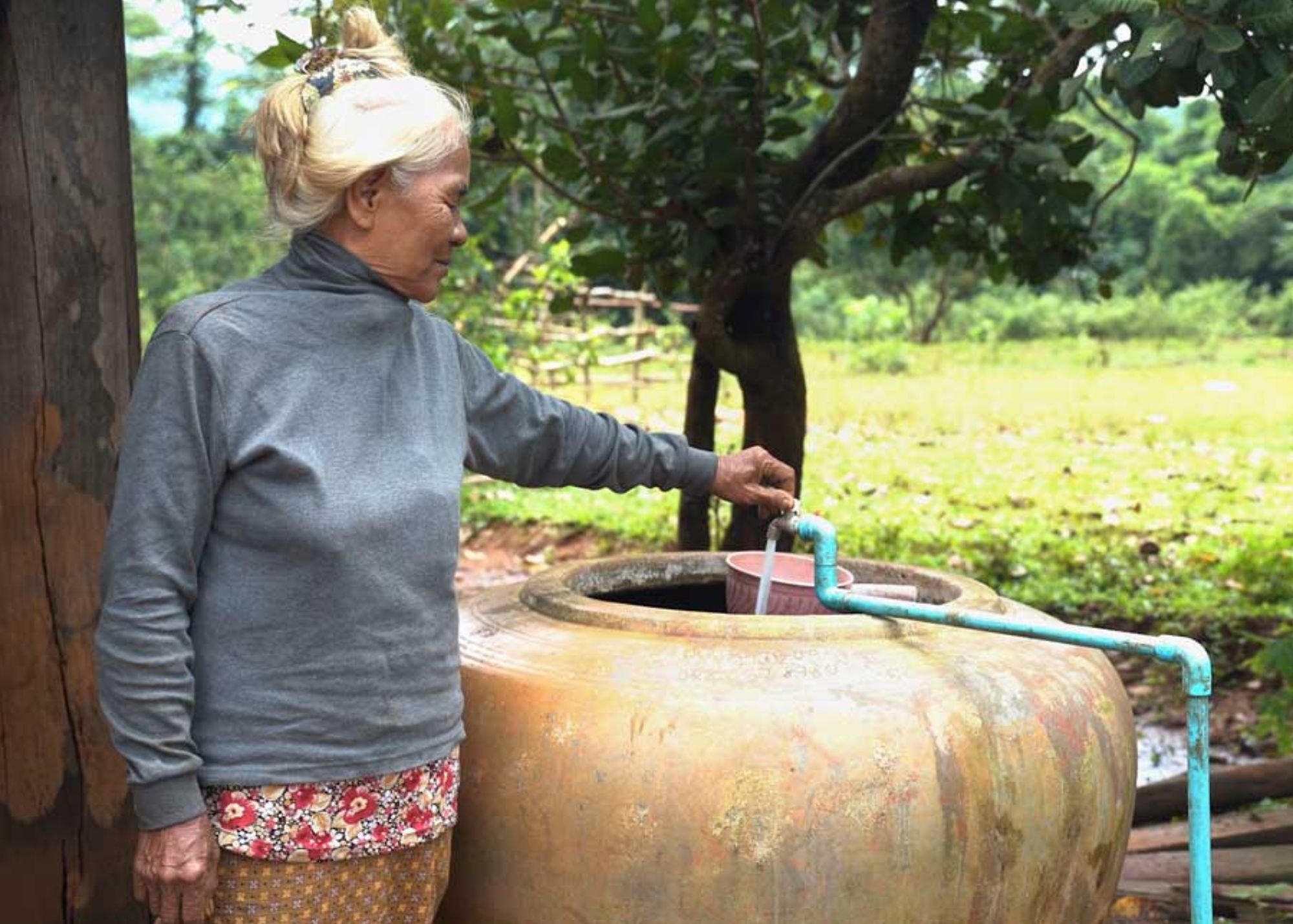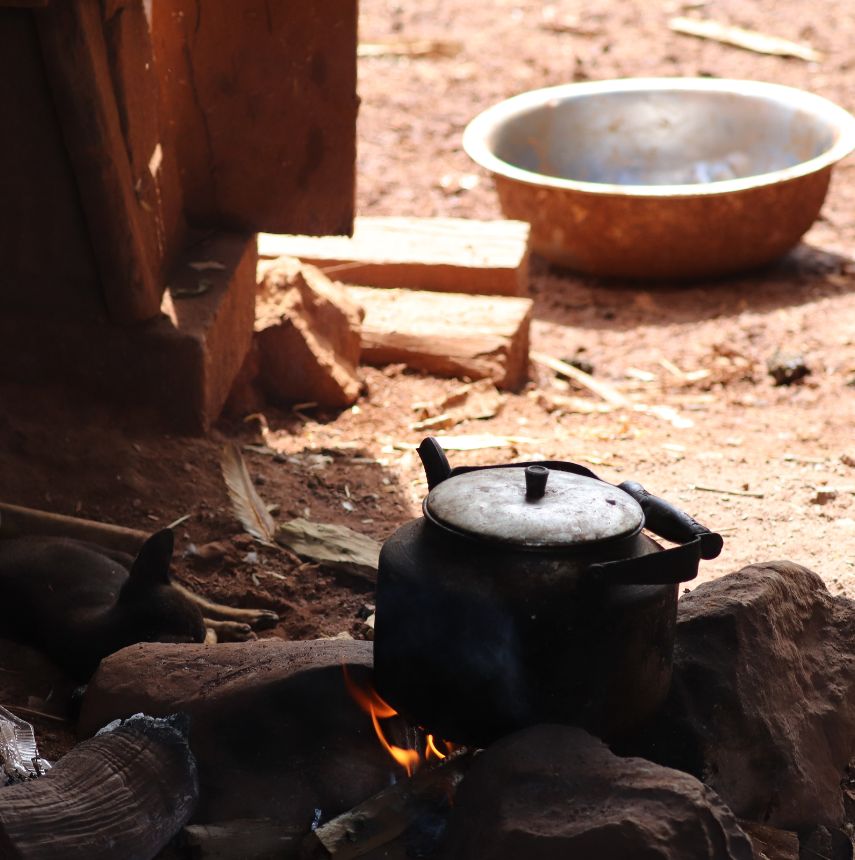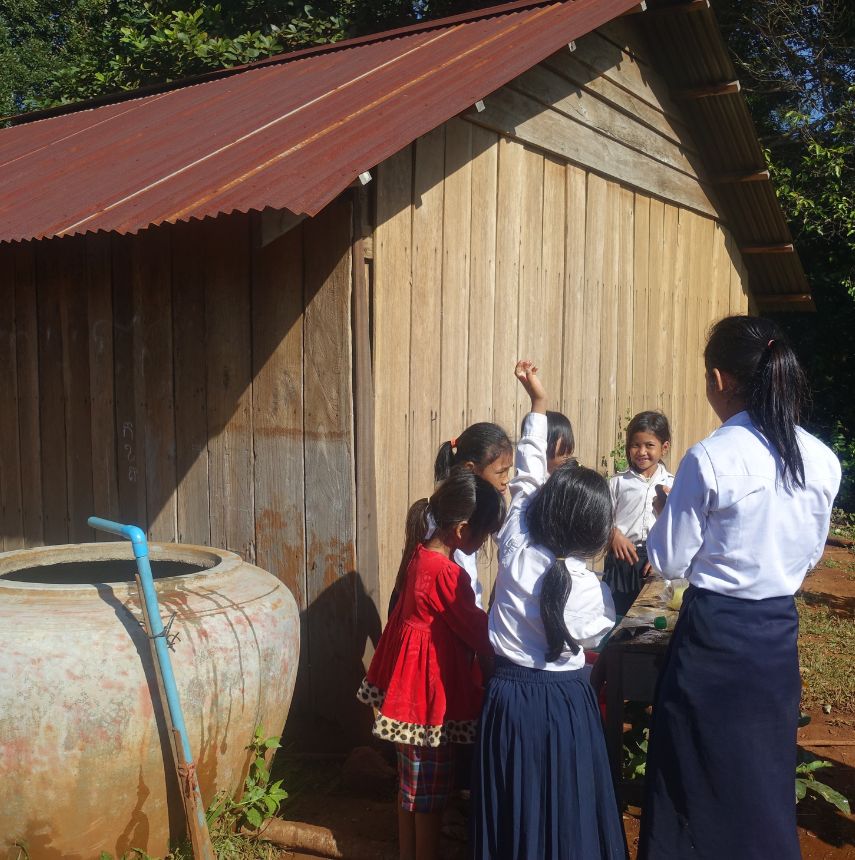
Perspectives on Collecting Water
Every summer for 18 years, I drank water hand drawn from a nearby well. Several times a week, according to the job chart tacked to the wall of our rustic cottage, I grabbed the faded green bucket from the counter and skipped along the flagstones to our well, topped by a heavily rusted iron lid. Mustering all the strength in my sapling-sized arms, I heaved back the groaning lid and peered into the clear water below, hemmed in by concrete walls and a gravelly bottom.
Several surprised frogs ferociously kicked to the bottom while the head of a yellow-spotted salamander, whom I’d grown familiar with over the years, escaped into a half-inch crack just above the waterline on the well’s opposite side. Following my dad’s instructions, I skimmed the surface and dumped it in the surrounding plant life. Then I scooped out a bucketful. Satisfied with my mostly debris-free load, I released the lid from its highest point, all for the satisfaction of hearing it slam down and echo off the surrounding hills. If our neighbours weren’t already awake, they certainly were now. Bucket in hand, I waddled home, water sloshing my socks with every step.

I didn’t grow up in poverty. Weekly water fetching was just part of our family’s normal summer experience growing up on a small rural lake in eastern Pennsylvania. For three months each year, we drank and cooked with this water, miraculously managing to avoid getting sick. Come September, we’d load up the Buick station wagon and head back to nine months of pure, clean, running tap water and all the accompanying modern conveniences: washing machines, dishwashers, showers and four different sinks, all of which filtered out frogs and salamanders. For my family, drinking hand-drawn water from a well, and the effort involved, was little more than a minor inconvenience.

For the Bunong living in the hill country of Mondulkiri, Cambodia, water collection is a major inconvenience, and risky, too. Last year, as a visiting professor from Houghton University studying human ecology, I sat in the stilted, clapboard houses of a handful of gracious — and impoverished — Bunong, as they told me about their lives and routine hardships.
Water, unsurprisingly, neared the top of the list. Unlike my family with our nearby well, the Bunong had to have water trucked to their homes, an expense many households could not afford. In some cases, the untested water they drank carried diseases and parasites far worse than any threats we might have faced in Pennsylvania. For the Bunong, the result of this system was an ever-deepening poverty trap: regular bouts of sickness that prevented education and employment — activities needed to move the household out of poverty. One root of this problem: unclean water came at a cost.
World Hope International is working to address this problem through the program AK Piped Water, formerly Tap Effect. It is remarkable in its simplicity: the installation of overland clean water piped directly into homes. The benefits are threefold: safeguarding a household’s health, expense, and time. With pipes in place, gainful activities can fill the hours previously exhausted on collecting water from unsafe sources.
Turning on a tap and accessing clean, safe water is something most of us take for granted. I sure do. It’s partly why I’m thankful for those idyllic childhood summers that involved weekly trips to our antiquated well. When I close my eyes, I can relive the memories: the groaning lid, terrified frogs, and my socks; always soaked by the time I was home. In the carefree context where I grew up, water collection was quaint. For the Bunong receiving access to clean, safe, and affordable water is central to breaking cycles of poverty, of experiencing opportunity, dignity and hope.

Clean water affects health, safety, education, and economic empowerment — and can change the game for vulnerable communities. This Christmas season help more people access nearby clean water. Every dollar that you give will be doubled, up to $17,000!

Eli J. Knapp
Special Content Contributor
Professor Eli Knapp ’00 teaches courses in ecology, biology, ornithography and conservation at Houghton University. He is the author of numerous articles and books, including The Delightful Horror of Family Birding: Sharing Nature with the Next Generation and Dead Serious: Wild Hope Amid the Sixth Extinction.
